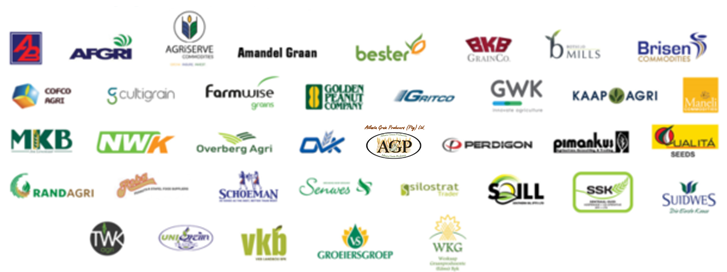Grain SA is an autonomous and voluntary commodity organisation acting collectively in the interests of the economic welfare of the grain producers of South Africa, and is the combined voice of grain producers to address commodity matters and issues with the government and other role-players in the industry.
Ordinary members, or natural persons, trusts and any legal persons who:produce grain for marketing, pay the prescribed membership fee and commodity levy to Grain SA, and underwrite the objectives of Grain SA.
Any producer who produces grain may obtain membership by merely completing the authorisation form that is available from Grain SA.As soon as Grain SA has received the authorisation form, it is handed to the collection agent concerned to deduct the levy and the producer is registered on the system as a member.
The current levy per ton for grain is as follow:
Grain SA Levy / Graan SA Heffing
| Gewas/Crop | Levy per ton / Heffing per ton 2023/24 |
|---|---|
| Maize/Mielies | R 4.10 |
| Soybeans/Sojabone | R 8.00 |
| Sunflower/Sonneblom | R 8.00 |
| Sorghum | R 4.70 |
| Groundnuts/Grondbone | R 13.90 |
| Wheat/Koring | R 4.70 |
| Canola/Kanola | R 6.40 |
| Barley/Gars | R 4.70 |
| Oats/Hawer | R 4.70 |
| All other grains | R 4.70 |
| * All levies exclude VAT |
Linked members:
If more than one person is involved in a farming operation, such persons can function as linked members.
The commodity levy is collected in two ways:
Grain SA has concluded agreements with agricultural businesses and other grain off-takers in terms of which these institutions, for an agency fee of 5%, recover the commodity levy for Grain SA as collection agents.This makes it easy for producers to ensure that their commodity levy is paid over.
The levy per ton is levied on all grains at the first point of delivery and the collection agent will only deduct the levy as long as the member agrees to this.
We look forward with great anticipation to cooperating with the following institutions – some are already collection agents, and then there are new institutions that have declared themselves to be willing to act as collection agents in future:

If a member delivers to an agricultural company or grain off-taker that does not collect and pay over the commodity levy, the member can pay the commodity levy to Grain SA himself by means of a cheque, a direct deposit at the bank or an electronic transfer.
Members who make direct or electronic deposits must fax or email the proof of payment containing the member’s particulars to Patricia Zimu at 086 509 7279 or patricia@grainsa.co.za.
Grain SA’s bank details are as follows:
Account holder: Grain South Africa
Bank: FNB Bank
Account number: 62864206430
Branch code: 230145
The commodity levy is primarily used for funding the core business of Grain SA, namely the research and development projects. Other essential activities that will ensure the sustainability of grain producers, e.g. the legal aid fund, are also funded from the commodity levy. The employment of the levy is approved annually by Congress, where feedback on all aspects of the commodity levy is also given.
The following line items are also funded from the levy:
5% of the levy paid is channelled back to the Grain SA branch structures and farmer’s associations from where it derives and provides the necessary funds to enable the branches to function effectively at grassroots level.
Member involvement is the key to a dynamic organisation and Grain SA invites every member to participate actively in the activities of the organisation, among other things by regularly attending branch and regional meetings. At these meetings members are given direct feedback on the activities of the organisation.
Remember: It is your organisation and we want to be of service to you.